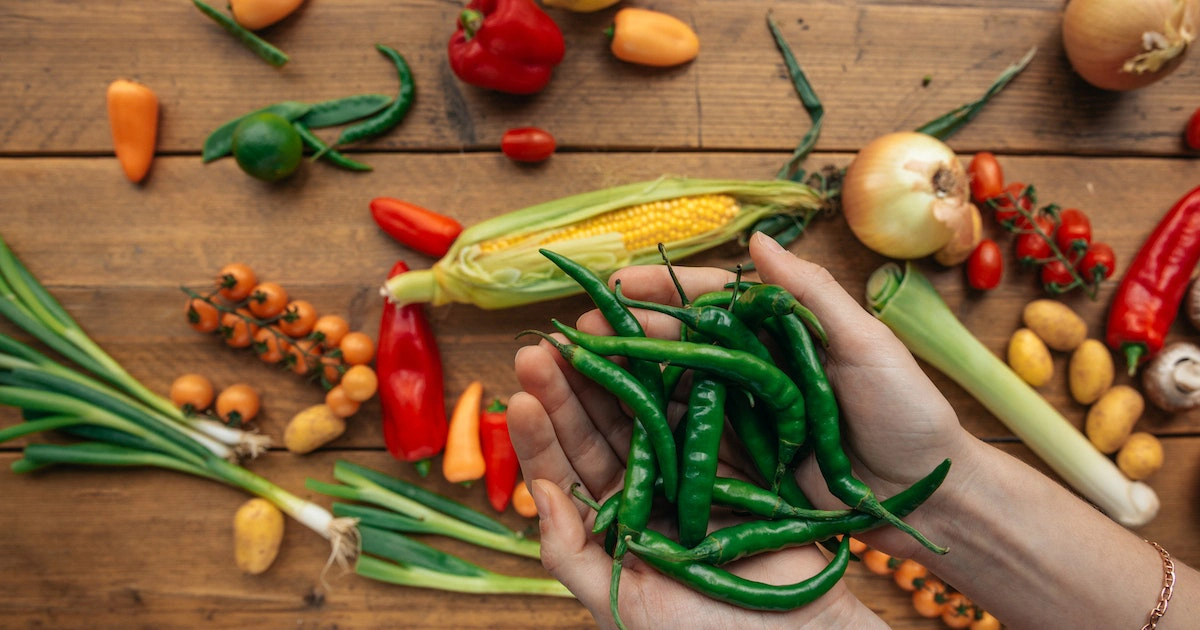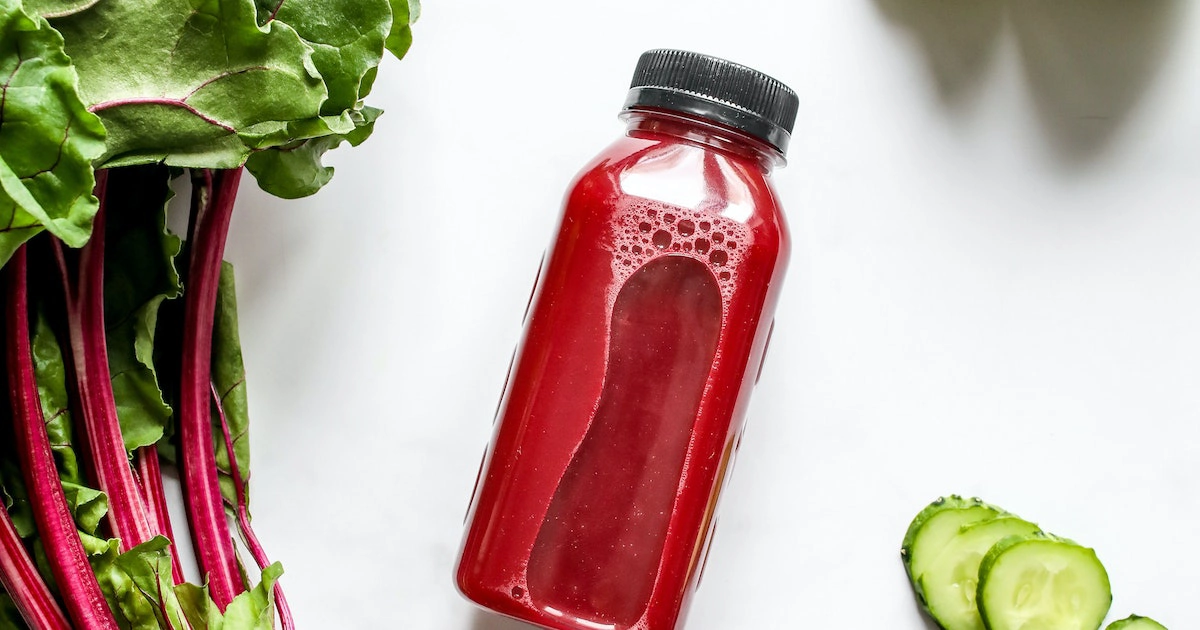Breastfeeding is an excellent way to nourish your baby, providing them with all the essential nutrients they need for proper growth and development. However, some babies may experience gas or other digestive issues after feeding, causing discomfort and fussiness. While breastfeeding moms can help alleviate these symptoms by making changes to their own diets, it may be hard to know which foods to avoid. This blog will explain the best foods to avoid when breastfeeding for gas in your baby, helping you create informed decisions about what you eat while nursing.
What Foods Make A Breastfed Baby Gassy?
When it comes to breastfeeding, it’s crucial to pay attention to the foods you consume, as they can have an impact on your baby’s digestion. Certain foods are known to contribute to gassiness in breastfed babies. Cruciferous vegetables like broccoli, cauliflower, and cabbage contain complex carbohydrates that can be difficult for a baby’s immature digestive system to break down, leading to increased gas. Beans and legumes, like that lentils and chickpeas, are rich in fibre and can also cause gas. Dairy products, especially if your baby is lactose intolerant, may result in gassiness. Caffeine, spicy foods, citrus fruits, and tomatoes are other culprits that can potentially create discomfort for your little one. By being mindful of these foods, you can help minimize gassiness and promote a more comfortable feeding experience for your breastfed baby.
How Can I Reduce My Breastfed Baby’s Gas?
Breastfeeding is a crucial stage in the development of a newborn baby. However, some foods that a breastfeeding mother eats can make the baby gassy and fussy. It’s vital to know which foods to avoid to ensure your baby’s comfort and prevent any digestive problems.
Some common culprits are dairy products, beans, cruciferous vegetables like broccoli and cauliflower, spicy foods, chocolate, caffeine, and citrus fruits. These foods can cause gas in babies because they contain complex carbohydrates that aren’t easily digested by your little one’s immature digestive system.
If you’re having trouble identifying what specific food is causing your baby’s discomfort or if your little one has colic-like symptoms such as crying excessively or being irritable after feeding sessions for more than 3 hours daily at least three times per week for over three weeks then consult with your paediatrician to rule out any underlying medical issues.
17 Foods To Avoid While Breastfeeding

When breastfeeding, it’s important to be aware of certain foods that may cause issues for both you and your baby. Here are 17 foods to consider avoiding while breastfeeding:
- Cruciferous vegetables: Broccoli, cauliflower, cabbage, and Brussels sprouts.
- Beans and legumes: Lentils, chickpeas, and kidney beans.
- Dairy products: Milk, cheese, yoghurt, and butter.
- Caffeine: Coffee, tea, chocolate, and certain sodas.
- Spicy foods: Peppers, curry, and hot sauces.
- Citrus fruits: Oranges, lemons, and grapefruits.
- Tomatoes and tomato-based products: Tomato sauce, ketchup, and salsa.
- Onions and garlic: These can sometimes cause colic or digestive issues.
- Peanuts and tree nuts: Can potentially trigger allergies in susceptible infants.
- Shellfish: This may cause allergic reactions in some babies.
- Fish high in mercury: Swordfish, shark, king mackerel, and tilefish.
- Alcohol: Can pass through breast milk and affect your baby’s development.
- Artificial sweeteners: Aspartame, saccharin, and sucralose.
- Highly processed foods: Fast food, packaged snacks, and sugary treats.
- Gas-producing vegetables: Bell peppers, onions, and beans.
- Strongly flavoured spices: Cumin, coriander, and cinnamon in excessive amounts.
- Allergenic foods: Wheat, soy, eggs, and cow’s milk, especially if your child has a family genetic history of allergies.
Remember how your baby reacts after consuming certain foods, and consult with a healthcare professional or lactation consultant if you have any concerns.
What Vegetables Are Not Gassy For Breastfeeding?
While it’s true that some vegetables can make a breastfed baby gassy, there are plenty of options that won’t cause any trouble. Non-gassy veggies for breastfeeding moms include leafy vegetables like kale and spinach, carrots, sweet potatoes, and zucchini. These green vegetables are packed with essential nutrients and are unlikely to cause any digestive problems for your little one.
It may be best to avoid gas-producing vegetables like broccoli, cauliflower, onions, and cabbage. While these veggies are generally healthy for adults to eat, they can lead to uncomfortable gas in babies who consume their mother’s milk. Remember how your baby reacts to different foods so you can tailor your diet accordingly.
Ultimately, a balanced diet full of nutrient-rich foods is crucial for breastfeeding moms. By choosing non-gassy vegetables and paying attention to your baby’s reactions after meals, you can provide optimal nutrition while keeping discomfort at bay.
What Causes Gas In Breast Milk?
Breast milk is the authentic source of nutrition for newborns, but it can sometimes cause gas and discomfort in babies. One of the main causes of gas in breast milk is the mother’s diet. Certain foods that a mother eats can pass through her breast milk and cause gas in her baby. Some common culprits include dairy products, spicy foods, beans, broccoli, cabbage, onions, and caffeine.
Another possible cause of gas in breast milk is an oversupply or imbalance of foremilk and hindmilk. Foremilk is the 1st milk that comes out during a feeding session and contains more lactose than hindmilk which has a higher fat content. If a baby gets too much foremilk without enough hindmilk, this can lead to gassiness.
Keep in mind not all babies will be affected by these factors equally. Some babies may have no issues with certain foods, while others may be more sensitive. If you suspect your baby’s gassiness is related to something you are eating or your milk production schedule, talk to your doctor or lactation consultant for advice on how to address the issue while still maintaining breastfeeding practices.
Which Fruits Increase Breast Milk?
While there is no magic fruit that can directly increase breast milk production, certain fruits do provide important nutrients that are necessary for lactation. Fruits like papayas, bananas, and apricots contain vitamins A and C, potassium and fibre, which can help improve overall health.
On the other hand, some fruits may contribute to gassiness in breastfed babies. For example, consuming large amounts of citrus fruits like oranges or grapefruits may cause digestive discomfort in some infants. Additionally, certain cruciferous vegetables like broccoli or cauliflower may also contribute to gas due to their high fibre content.
Which Fruits To Avoid While Breastfeeding?

Breastfeeding mothers should be mindful of their diet as some foods may cause discomfort or gas in their babies. Fruits that are known to cause gas and colic in infants include citrus fruits such as oranges, lemons, and grapefruits. These fruits are acidic and can irritate the baby’s sensitive digestive system.
Another fruit that breastfeeding mothers should avoid is pineapple. Pineapples have an enzyme called bromelain which can cause stomach upset in infants. Additionally, mangoes may also cause gas and bloating due to their high fibre content.
It is an introductory note that every baby is different, so what may affect one baby may not affect another. If a mother notices excessive fussiness or gassiness in her infant after consuming certain fruits or other foods, it may be best to avoid them until the baby’s digestive system matures.
Is Apple Good For Breast Milk?
Breast milk is a nutritious food for a newborn baby, but what a breastfeeding mother eats can have an impact on the baby’s digestion. Some foods can make a breastfed baby gassy and uncomfortable, leading to fussiness and crying. One of the popular questions among new mothers is whether or not eating apples is good for breast milk.
Apples contain fibre, vitamins, and antioxidants that can benefit both the mother and the baby. However, they may also cause gas in some babies due to their high FODMAP content. FODMAPs are short-chain carbohydrates that some people cannot digest properly, leading to bloating and gas. If your baby experiences discomfort after you eat apples, try reducing your intake or avoiding them altogether.
Every baby has a unique character and reacts differently to certain foods in their mother’s diet. It’s best to pay attention to your child’s cues and adjust your diet accordingly if needed. Always discussing with a healthcare professional can provide additional guidance on how to maintain a healthy breastfeeding diet while keeping your baby comfortable.
Can I Drink Milk While Breastfeeding?
Breastfeeding mothers often worry about what they eat and its effect on their babies. One common concern is whether drinking milk can make a breastfed baby gassy. The answer depends on the baby’s tolerance to lactose, a sugar finds out in milk, and the amount of milk consumed by the mother.
Some breastfed babies may be sensitive to lactose and experience gas or fussiness if their mother drinks too much milk. However, most babies are not affected by small amounts of lactose in breast milk. Mothers must monitor their baby’s behaviour after consuming dairy products and adjust their diet accordingly.
In addition to milk, other foods that can make a breastfed baby gassy include beans, broccoli, cauliflower, onions, cabbage, and spicy foods. Mothers who notice excessive gas or discomfort in their babies should consider eliminating these foods from their diet temporarily and reintroducing them one at a time to identify any potential triggers. Overall, breastfeeding mothers need to maintain a healthy diet while also being mindful of how certain foods may affect their baby’s digestion.
Are Eggs Good For Breastfeeding?
Breastfeeding can be a demanding but rewarding experience for new mothers. But it’s essential to pay attention to what you eat during this phase, as it can directly affect your baby’s digestive system. Some foods may cause gas or discomfort in your little one, and eggs are one of them. An egg is a source of protein and other important nutrients, but it can make breastfed babies gassy.
Eggs contain sulfur, which breaks down into hydrogen sulfide gas during digestion, causing flatulence. Additionally, egg yolk contains high-fat content that is difficult for babies’ immature digestive systems to digest. As a result, babies may experience bloating, abdominal pain or cramps when nursing mothers consume eggs too often.
It is recommended that breastfeeding mothers avoid consuming too many eggs at once or on consecutive days to reduce the likelihood of their baby experiencing discomfort from gas buildup in the stomach. Therefore, monitor how your child responds after feeding on days you have eaten eggs and adjust accordingly based on their response.
Which Juice Increase Breast Milk?

There is no definitive answer to which juice increases breast milk; specific options can help increase milk supply. Some of the popular choices include carrot juice, beetroot juice, and pomegranate juice. These juices contain essential nutrients like iron, vitamin A, and antioxidants that can aid lactation.
But, it is essential to remember that simply drinking juice alone may not be sufficient to increase breast milk production. Other factors, such as proper hydration and a balanced diet, also play a crucial role in promoting lactation.
Some foods can make a breastfed baby gassy. These include dairy products, broccoli, beans, onions and chocolate, among others. While breastfeeding mothers should try to consume a balanced diet rich in nutrients and vitamins to promote lactation, they should also be cautious about introducing gas-inducing foods into their diet as this may cause discomfort for the baby during feeding time.
Are Dates Good For Breastfeeding?
Breastfeeding mothers are often looking for ways to boost their milk supply and ensure that their baby is getting enough nutrients. Dates are a popular food that has been touted for its ability to increase milk production, and some women swear by them as a snack while breastfeeding.
There are several culprits regarding foods that can make a breastfed baby gassy. Dairy products, particularly cow’s milk, can cause digestive issues in some babies due to lactose intolerance. Common triggers include cruciferous vegetables like broccoli and cauliflower, beans and legumes, spicy foods, and caffeine. If you show that your baby seems fussy or uncomfortable after feeding or during the day, it may be worth experimenting with eliminating certain foods from your diet.
Dates can be part of a healthy breastfeeding diet but shouldn’t be relied on solely for increasing milk production. As with any dietary changes or concerns about your baby’s digestion or health, it’s always best to speak with a doctor before any drastic changes.
Is Yoghurt Good For Breastfeeding?
Breastfeeding mothers often wonder if consuming yoghurt can impact their breastfeeding babies. The good news is that yoghurt is a great food choice for nursing mothers as it contains probiotics which can help boost the baby’s immune system and promote healthy digestion. In addition, yoghurt contains high calcium and protein, which are important nutrients for both the mother and baby.
On the other hand, some foods breastfeeding mothers consume can make their babies gassy. These include dairy products like milk, cheese, and ice cream, as well as cruciferous vegetables such as broccoli and cauliflower. It is vital to note that each baby may react differently to certain foods, so it’s best to pay attention to your own baby’s reactions after feeding them these types of foods.
Which Vegetables Increase Breast Milk?
There is no scientific evidence that certain vegetables can significantly increase breast milk production; some vegetables are rich in nutrients that can support lactation. For example, leafy vegetables like spinach and kale contain high iron levels, which is crucial for milk production. Additionally, carrots are a good source of beta-carotene, it is important for health and wellness.
It’s worth noting that while these vegetables may not directly increase breast milk supply, they can provide valuable nutrients to nursing mothers. However, it’s important to remember that every woman’s body is different, and react for one person may not react to another.
On the other hand, some vegetables cause gas in breastfed babies. Cruciferous vegetables like broccoli and cauliflower are notorious culprits due to their high fibre content. Other gas-inducing veggies include onions and peppers.
Can Spicy Food Affect Breast Milk?
Breastfed babies are susceptible to digestive issues, including gas and colic. Moms who breastfeed should be mindful of what they eat since certain foods can cause gassiness in their infants. In particular, spicy foods are often thought to be a culprit for causing gastrointestinal disturbances.
While there is no hard evidence that spicy food affects breast milk production or quality, some moms have observed an increase in their baby’s fussiness or excessive crying after eating spicy meals. Experts suggest that capsaicin, the chemical compound responsible for spiciness, can make its way into breast milk. Capsaicin may cause discomfort in babies’ mouths and intestines as it can irritate their sensitive tissues.
To avoid potential gassiness caused by consuming spicy foods while breastfeeding, mothers may try to limit their intake of spices or choose milder options instead. If the infant shows signs of discomfort after eating spicy food-laden milk, moms might also try adjusting their diets by eliminating hot peppers and other strong spices for a few days to check if it makes any difference in how the baby reacts during feeding times.
What Not To Do While Breastfeeding?
While breastfeeding, it’s essential to avoid certain foods that can make your little one gassy. Some of the common culprits include beans, broccoli, cabbage, onions, garlic and spicy foods. Consuming these items may cause indigestion in babies or make them more prone to colic.
Another mistake that breastfeeding mothers should avoid is drinking caffeinated products such as coffee and tea excessively. Caffeine can pass through breast milk and affect the baby’s sleep cycle or make them irritable. Therefore, it’s best to limit caffeine intake during breastfeeding.
Lastly, smoking while breastfeeding should be avoided at all costs, as tobacco smoke contains harmful chemicals that can enter a baby’s system through breast milk. Smoking has been linked to respiratory issues in infants, including asthma and pneumonia; therefore, mothers who smoke should consider quitting or finding alternative feeding methods like bottle-feeding with formula milk.
Can I Eat Ice Cream While Breastfeeding?
Breastfeeding is a natural process that provides babies with all the basic nutrients for their growth and development. However, there are certain foods that breastfeeding mothers should avoid to prevent gassiness in their babies. Consuming too much dairy, including ice cream, can cause lactose intolerance in some babies, which can lead to bloating and gas.
Other food items such as beans, broccoli, cabbage, onions, garlic and spicy or fatty foods can also cause gas and discomfort for breastfed babies. Mothers must listen to their baby’s cues and adjust their diet accordingly.
If you’re craving ice cream while breastfeeding, indulging occasionally is okay, but moderation is key. Consider choosing low-lactose options or non-dairy alternatives like sorbet or coconut milk ice cream instead of traditional dairy-based products.
Can I Eat Chocolate While Breastfeeding?
Breastfeeding mothers often worry about what they can and cannot eat for fear of causing discomfort to their babies. While certain foods, such as spicy or gassy foods, may cause a reaction in some babies, chocolate is generally considered safe to consume while breastfeeding. But it’s crucial to remember that every baby is unique and may react differently.
If you notice that your baby becomes gassy after consuming chocolate or any other food, it’s best to avoid eating them altogether or limit your intake until you can determine the exact cause of the reaction. In general, it’s recommended that breastfeeding mothers maintain a healthy diet with fruits and vegetables, lean protein sources, and whole grains.
Other common culprits that may make a breastfed baby gassy include dairy products, beans and legumes, cruciferous vegetables (such as broccoli), onions and garlic.
Can You Eat Pizza While Breastfeeding?
While it is generally safe to eat pizza while breastfeeding, certain types of pizza may cause excessive gas in a breastfed baby, pizza that contains high amounts of dairy, such as mozzarella or ricotta cheese, can contribute to gas and discomfort in some babies. Additionally, pizza topped with spicy ingredients like pepperoni or jalapeños can cause gastrointestinal distress.
Other foods that may make a breastfed baby gassy include cruciferous vegetables like broccoli and cauliflower, beans and legumes, onions and garlic, caffeine, and carbonated beverages. Breastfeeding mothers must maintain a balanced diet and be mindful of their baby’s reactions to certain foods. If a mother notices that her baby is experiencing excessive gas or discomfort after eating certain foods. She may want to eliminate those from her diet temporarily and consult with a healthcare provider if necessary.
Overall, moderation is key in consuming potentially gassy foods while breastfeeding. Eating small portions of these foods with other nutritious options can help minimize any adverse effects on the baby’s digestive system.
Does Sugar Affect Breast Milk?
It is important to note that sugar does not affect breast milk directly. However, excessive sugar consumption can indirectly affect breast milk production and quality. Consuming high levels of refined sugars and processed foods may lead to pain and inflammation in the body, which can impair overall health and potentially negatively impact lactation. In addition, consuming too much sugar can cause a drop in energy levels and lead to dehydration, which may decrease the milk supply.
Certain foods consumed by a breastfeeding mother may affect her baby’s digestion and cause gassiness. Foods such as dairy products, beans, cruciferous vegetables (broccoli, cauliflower), onions, garlic, spicy foods and caffeine can all contribute to gas formation in babies. However, mothers must remember that every baby is different, and what bothers one may not bother another. If a mother suspects that her diet may be causing discomfort for her baby. She should consult with a lactation consultant to determine the best course of action.
Can Breastfeeding Mothers Eat Biscuits?
Breastfeeding mothers can eat biscuits, but they should be cautious about the type of biscuits they consume. It is recommended to choose whole-grain or low-sugar biscuits that provide a good source of fibre and nutrients for both mother and baby. But, it is crucial to check the ingredients list for any allergens that may affect the baby.
Regarding foods that make a breastfed baby gassy, some common culprits include dairy products, cruciferous vegetables (broccoli, cauliflower), beans and legumes, spicy foods, onions and garlic. While every baby is different regarding what may cause gas or discomfort, breastfeeding mothers can try eliminating these foods from their diet.
Overall, breastfeeding mothers should maintain a healthy balanced diet while also being aware of any potential sensitivities their baby may have to certain foods. Always consult a healthcare provider if there are concerns about a baby’s digestive health.
Conclusion
Some foods can make a breastfed baby gassy. These include dairy products, caffeine, spicy or greasy foods, broccoli and other cruciferous vegetables, and beans.
If you think that some foods may be causing your baby’s gas discomforts, try eliminating them from your diet a few times to see if there is any improvement. Keeping a food chart to track what you eat and when your baby experiences gas is also beneficial.
Remember that breastfeeding is a unique experience for every mother and child pair. While some babies may not react to certain foods, others may be more sensitive. Don’t hesitate to consult your lactation consultant for personalized advice on how best to support your breastfeeding journey.
FAQ
Q1: Are There Specific Foods That I Should Avoid While Breastfeeding To Prevent Gas In My Baby?
A: Yes, certain foods are known to cause gas in babies when consumed by breastfeeding mothers. While every baby is different, some common gas-inducing foods include:
Cruciferous vegetables (broccoli, cauliflower, cabbage)
Beans and legumes
Onions and garlic
Spicy foods
Citrus fruits and juices
Caffeine
Dairy products (for babies with lactose intolerance or milk protein sensitivity)
Chocolate
